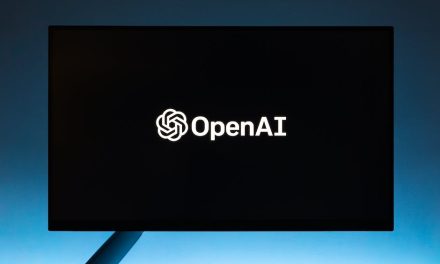Table of Contents
- Introduction
- Benefits of Implementing Performance Management Software in Talent-Focused Organizations
- How Performance Management Software Enhances Employee Engagement and Productivity
- The Role of Performance Management Software in Identifying and Developing High-Potential Employees
- Key Features to Consider When Choosing Performance Management Software for Talent-Focused Organizations
- Q&A
- Conclusion
Unlocking the full potential of your talent with performance management software.
Introduction
Performance management software plays a crucial role in talent-focused organizations. It enables businesses to effectively manage and optimize the performance of their employees, aligning individual goals with organizational objectives. This software provides a centralized platform for tracking, evaluating, and improving employee performance, fostering a culture of continuous development and growth. By automating various performance management processes, organizations can streamline their talent management efforts, enhance productivity, and drive overall business success.
Benefits of Implementing Performance Management Software in Talent-Focused Organizations

Performance management software has become an essential tool for talent-focused organizations. With the increasing emphasis on attracting, developing, and retaining top talent, organizations are recognizing the need for effective performance management systems. These systems not only help in evaluating employee performance but also play a crucial role in aligning individual goals with organizational objectives. In this article, we will explore the benefits of implementing performance management software in talent-focused organizations.
One of the key benefits of performance management software is its ability to streamline the performance evaluation process. Traditional paper-based evaluations can be time-consuming and prone to errors. By automating the process, performance management software allows organizations to save time and resources. It also ensures consistency in the evaluation process, as predefined criteria and rating scales can be used consistently across the organization.
Another advantage of performance management software is its ability to provide real-time feedback. Traditional performance evaluations often happen once or twice a year, leaving employees with limited opportunities for improvement. With performance management software, managers can provide continuous feedback, enabling employees to make timely adjustments and improvements. This real-time feedback not only enhances employee performance but also fosters a culture of continuous learning and development.
Performance management software also facilitates goal setting and tracking. By providing a centralized platform for setting and monitoring goals, it ensures that employees are aligned with the organization’s objectives. Managers can easily track progress, provide guidance, and make necessary adjustments to ensure that goals are achieved. This feature not only enhances individual performance but also contributes to the overall success of the organization.
In addition to goal setting, performance management software enables organizations to identify and nurture high-potential employees. By tracking performance data and identifying top performers, organizations can develop targeted development plans and succession strategies. This proactive approach to talent management ensures that high-potential employees are recognized and provided with opportunities for growth and advancement.
Furthermore, performance management software enhances transparency and accountability within the organization. By providing employees with access to their performance data, it promotes a sense of ownership and responsibility. Employees can track their progress, identify areas for improvement, and take proactive steps to enhance their performance. This transparency also fosters a culture of trust and open communication, as employees feel valued and involved in the performance management process.
Lastly, performance management software provides valuable insights and analytics. By analyzing performance data, organizations can identify trends, patterns, and areas of improvement. This data-driven approach enables organizations to make informed decisions regarding talent development, resource allocation, and performance improvement initiatives. It also helps in identifying training needs and addressing skill gaps, ensuring that employees have the necessary tools and resources to succeed.
In conclusion, performance management software is a valuable tool for talent-focused organizations. Its ability to streamline the performance evaluation process, provide real-time feedback, facilitate goal setting and tracking, identify high-potential employees, enhance transparency and accountability, and provide valuable insights and analytics make it an essential investment. By implementing performance management software, organizations can effectively manage and develop their talent, ultimately leading to improved performance and organizational success.
How Performance Management Software Enhances Employee Engagement and Productivity
Performance management software has become an essential tool for talent-focused organizations seeking to enhance employee engagement and productivity. In today’s competitive business landscape, organizations are realizing the importance of effectively managing and developing their workforce to drive success. Performance management software offers a comprehensive solution that enables organizations to align their employees’ goals with the overall business objectives, track their progress, and provide timely feedback and recognition.
One of the key benefits of performance management software is its ability to enhance employee engagement. Engaged employees are more likely to be motivated, productive, and committed to their work. By providing a platform for ongoing communication and feedback, performance management software helps foster a culture of transparency and open dialogue between employees and managers. This enables employees to feel valued and heard, leading to increased job satisfaction and a sense of ownership in their work.
Moreover, performance management software allows organizations to set clear expectations and goals for their employees. By defining performance expectations and linking them to the organization’s strategic objectives, employees gain a better understanding of how their work contributes to the overall success of the company. This clarity helps employees stay focused and motivated, as they can see the direct impact of their efforts on the organization’s performance.
In addition to enhancing employee engagement, performance management software also plays a crucial role in improving productivity. Traditional performance management processes often involve time-consuming manual tasks, such as paper-based performance appraisals and manual data entry. These processes are not only inefficient but also prone to errors and biases. Performance management software automates these tasks, streamlining the entire performance management process and freeing up valuable time for both employees and managers.
Furthermore, performance management software provides real-time visibility into employee performance. Managers can easily track and monitor their team’s progress, identify areas for improvement, and provide timely feedback and coaching. This real-time feedback loop enables employees to make necessary adjustments and improvements, leading to continuous growth and development. By addressing performance issues promptly, organizations can prevent them from escalating and negatively impacting overall productivity.
Another significant advantage of performance management software is its ability to facilitate data-driven decision-making. By capturing and analyzing performance data, organizations can gain valuable insights into their workforce’s strengths, weaknesses, and development needs. This data-driven approach enables organizations to make informed decisions regarding talent development, succession planning, and performance improvement initiatives. By aligning their talent strategies with data-driven insights, organizations can optimize their workforce and drive better business outcomes.
In conclusion, performance management software is a critical tool for talent-focused organizations looking to enhance employee engagement and productivity. By providing a platform for ongoing communication, goal setting, and feedback, performance management software fosters a culture of transparency and accountability. It streamlines the performance management process, saving time and reducing errors. Additionally, it enables real-time visibility into employee performance, facilitating timely feedback and coaching. Finally, performance management software empowers organizations to make data-driven decisions regarding talent development and performance improvement. In today’s fast-paced business environment, organizations cannot afford to overlook the importance of performance management software in driving employee engagement and productivity.
The Role of Performance Management Software in Identifying and Developing High-Potential Employees
Performance management software plays a crucial role in identifying and developing high-potential employees within talent-focused organizations. In today’s competitive business landscape, organizations are constantly seeking ways to maximize their human capital and ensure that they have the right people in the right positions. This is where performance management software comes into play, providing a comprehensive solution for talent management.
One of the key benefits of performance management software is its ability to accurately identify high-potential employees. By tracking and analyzing various performance metrics, such as productivity, goal attainment, and customer satisfaction, the software can identify individuals who consistently outperform their peers. This data-driven approach eliminates biases and ensures that the identification process is fair and objective.
Once high-potential employees are identified, performance management software helps organizations develop their skills and capabilities. The software provides a platform for setting and tracking individual development plans, which can include training programs, mentoring opportunities, and stretch assignments. By aligning these development plans with the organization’s strategic goals, performance management software ensures that high-potential employees are equipped with the necessary skills to drive the organization forward.
Furthermore, performance management software facilitates ongoing feedback and coaching, which are essential for the growth and development of high-potential employees. Through regular check-ins and performance reviews, managers can provide constructive feedback, recognize achievements, and address any areas for improvement. This continuous feedback loop not only helps high-potential employees stay on track but also fosters a culture of learning and development within the organization.
In addition to identifying and developing high-potential employees, performance management software also plays a crucial role in succession planning. Succession planning is the process of identifying and preparing individuals to fill key leadership positions within the organization. By leveraging the data and insights provided by performance management software, organizations can identify potential successors and create tailored development plans to groom them for future leadership roles.
Moreover, performance management software enables organizations to track and measure the impact of their talent development initiatives. By analyzing the performance data of high-potential employees before and after their development plans, organizations can assess the effectiveness of their programs and make data-driven decisions to improve them. This data-driven approach ensures that talent development efforts are aligned with the organization’s strategic objectives and deliver tangible results.
In conclusion, performance management software plays a vital role in identifying and developing high-potential employees within talent-focused organizations. By leveraging data and analytics, the software provides an objective and fair approach to identifying high-potential employees. It also facilitates the creation of tailored development plans, ongoing feedback, and coaching, which are essential for the growth and development of these individuals. Furthermore, performance management software supports succession planning efforts and enables organizations to track and measure the impact of their talent development initiatives. In today’s competitive business landscape, organizations cannot afford to overlook the importance of performance management software in maximizing their human capital and driving organizational success.
Key Features to Consider When Choosing Performance Management Software for Talent-Focused Organizations
Performance management software plays a crucial role in talent-focused organizations. It helps streamline and automate various processes related to employee performance, such as goal setting, performance reviews, feedback, and development planning. By implementing the right performance management software, organizations can effectively manage and develop their talent, leading to improved employee engagement, productivity, and overall business success.
When choosing performance management software for talent-focused organizations, there are several key features to consider. These features can greatly impact the effectiveness and efficiency of the software in supporting talent management initiatives.
First and foremost, integration capabilities are essential. The performance management software should seamlessly integrate with other HR systems, such as payroll, learning management, and applicant tracking systems. This integration allows for a holistic view of employee data and ensures that performance management processes are aligned with other HR functions. For example, when an employee completes a training course, the performance management software should automatically update their development plan and track progress towards their goals.
Another important feature to consider is goal management. The software should provide a robust goal-setting framework that allows organizations to align individual goals with overall business objectives. This feature enables employees to understand how their work contributes to the organization’s success and provides a clear roadmap for their development. Additionally, the software should support ongoing goal tracking and progress monitoring, allowing managers and employees to regularly review and adjust goals as needed.
Feedback and performance review capabilities are also crucial. The software should facilitate continuous feedback and encourage regular check-ins between managers and employees. This promotes a culture of open communication and helps address performance issues in a timely manner. Furthermore, the software should support both formal and informal performance reviews, allowing for a comprehensive evaluation of employee performance. It should provide customizable review templates and rating scales to accommodate different performance evaluation methods used by organizations.
Development planning is another key feature to consider. The software should enable employees and managers to create personalized development plans based on performance review feedback and career aspirations. It should provide access to learning resources, such as online courses or mentoring programs, to support employee growth and skill development. Additionally, the software should allow for tracking and monitoring of development activities, ensuring that employees are actively working towards their goals.
Analytics and reporting capabilities are also essential when choosing performance management software. The software should provide comprehensive data and analytics on employee performance, allowing organizations to identify trends, strengths, and areas for improvement. This data-driven approach enables informed decision-making and helps organizations identify high-potential employees for future leadership roles. Furthermore, the software should generate customizable reports that can be easily shared with stakeholders, such as managers, executives, and HR professionals.
In conclusion, performance management software is a valuable tool for talent-focused organizations. When choosing the right software, organizations should consider key features such as integration capabilities, goal management, feedback and performance review capabilities, development planning, and analytics and reporting capabilities. By selecting a software that aligns with their talent management objectives, organizations can effectively manage and develop their talent, leading to improved employee engagement, productivity, and overall business success.
Q&A
1. What is performance management software?
Performance management software is a tool that helps organizations track, evaluate, and manage the performance of their employees. It typically includes features such as goal setting, performance reviews, feedback mechanisms, and data analytics.
2. Why is performance management software important for talent-focused organizations?
Performance management software is important for talent-focused organizations because it allows them to effectively monitor and assess the performance of their employees. It helps identify areas of improvement, align individual goals with organizational objectives, and provide timely feedback and coaching to enhance employee development and engagement.
3. How does performance management software benefit talent-focused organizations?
Performance management software benefits talent-focused organizations by streamlining and automating performance evaluation processes. It provides a centralized platform for tracking and analyzing performance data, enabling data-driven decision-making and identifying high-performing individuals for talent development initiatives. It also promotes transparency, fairness, and accountability in performance management practices.
4. What are the key features to look for in performance management software for talent-focused organizations?
Key features to look for in performance management software for talent-focused organizations include goal setting and tracking, continuous feedback mechanisms, performance review and appraisal capabilities, competency assessments, development planning tools, and robust analytics and reporting functionalities. Integration with other HR systems and user-friendly interfaces are also important considerations.
Conclusion
In conclusion, performance management software plays a crucial role in talent-focused organizations. It enables these organizations to effectively track, evaluate, and develop their employees’ performance, aligning it with organizational goals. By providing real-time feedback, goal setting, and performance tracking, this software helps organizations identify top performers, address skill gaps, and foster a culture of continuous improvement. Ultimately, the use of performance management software enhances employee engagement, productivity, and overall organizational success.




